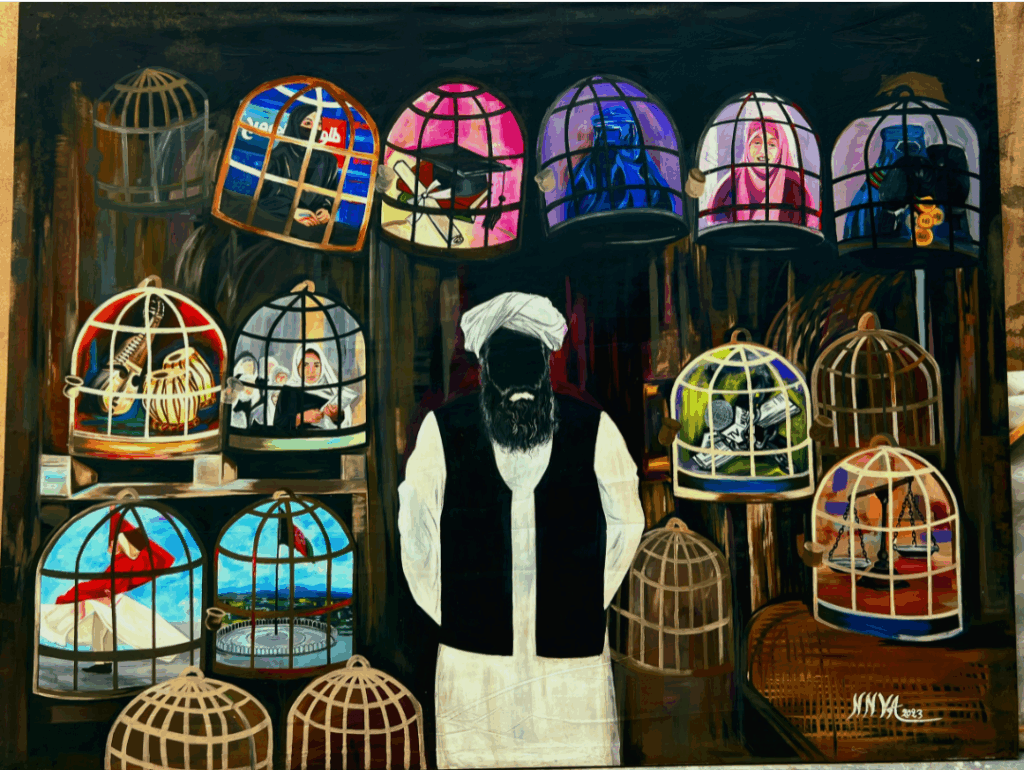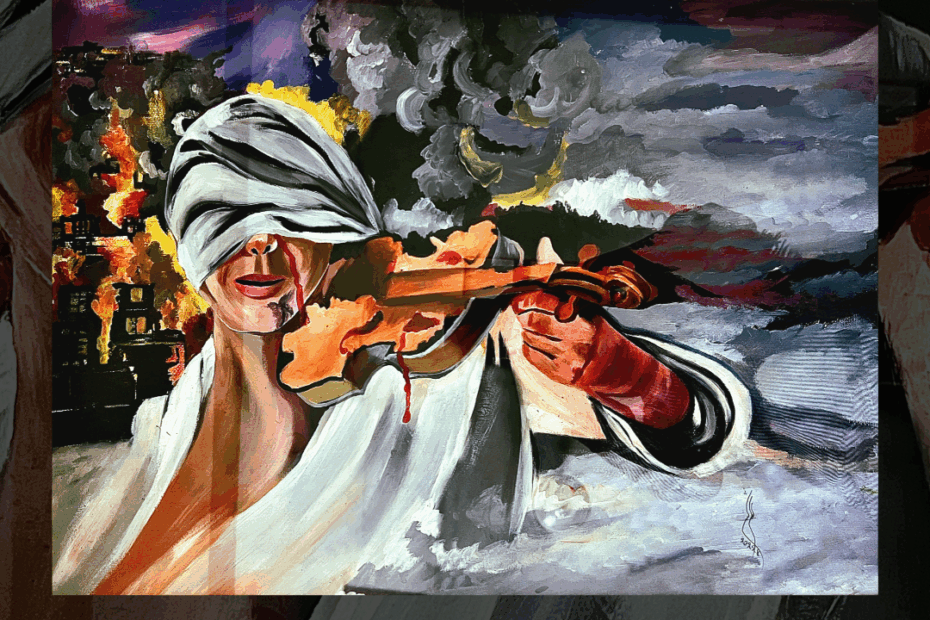“Artistic freedom is oxygen for the soul. Without it, we don’t just lose songs or paintings—we lose identities, dreams, and the hope of a more human world.”
– Manizha Talash, aka B-Girl Talash
Hundreds of thousands of Afghans living in Pakistan have been expelled to Afghanistan following the March 31st resettlement deadline imposed by the Pakistani government. Facing restrictive Taliban rule and an economic crisis in Afghanistan, the expelled population includes 800,000 Afghan Citizen Card holders, some of whom have lived in Pakistan for decades, and more than a million undocumented Afghans. The fate of 200,000 asylum seekers, including 20,000 awaiting US resettlement, is uncertain as their deadline to voluntarily leave Pakistan looms on June 30th.
Since taking power three years ago, the ruling Taliban has imposed severe restrictions on personal freedoms and banned artistic expression, forcing many artists and musicians to flee the country. Labeling singing and various other art forms as “immoral and un-Islamic,” the regime has outlawed them, leading to widespread persecution of artists and the destruction of their work and property. “The thought of returning to Afghanistan is daunting,” says a representative of the Nay-Negar Visual Art Center (NN VAC), a female-run arts group who fled Afghanistan in 2022. “The repressive policies not only stifle our art but also threaten our life. It’s very painful not to be safe in your own home.”
Women artists like those of the Nay-Negar Visual Art Center face a particularly great risk in Afghanistan, where the Taliban restricts nearly every aspect of women’s lives including their expression, free movement, education and even the sound of their voices in public. Under the “Law on the Promotion of Virtue and Prevention of Vice,” morality inspectors are empowered to detain and punish individuals—especially women and LGBTQ+ people—for alleged moral offenses, with the authority to enter private homes without warning.

While returning to Afghanistan means certain risk to many who have fled, those who have settled in Pakistan have not found a safe haven either. Discrimination and hostility towards Afghans in Pakistan is pervasive, and the suspension of refugee programs to countries like the United States has contributed to a feeling of uncertainty and anxiety for many who are waiting for asylum. The artists of Nay-Negar have received support from AGL in their search for safety and describe feeling like they are “standing at the edge of a cliff, torn between the desire to create an artwork and the fear of losing everything. Or feeling like [we] have nothing; no country, no safe home, no certain future, like getting lost in the big fog and dust.”
According to recent UN reports, over 900,000 Afghans have been deported from Pakistan since 2023—around 70% of them women and children. By the end of April 2025, the UNHCR reported that more than 250,000 Afghans had returned from Pakistan and Iran, where they also face resettlement orders. Of these, 96,000 were deported. The UNHCR has called on Pakistan to ensure that all returns are carried out voluntarily and in accordance with international legal standards. To support this, they have established refugee centers along the Afghan border to help facilitate the resettlement of some refugees to third countries when possible.
Olympian and renowned breakdancer Manizha Talash (aka B-Girl Talash fled Afghanistan and used her platform on the world Olympic stage in 2024 to bring attention to the situation of women and girls in Afghanistan. She was disqualified for “political propaganda” by the Olympic committee after revealing a cape with the words “FREE AFGHAN WOMEN,” and is challenging that decision on grounds of free expression with help from Avant-Garde Lawyers. Worried about the situation artists face as they are returned to Afghanistan, Manizha tells AGL:, “What breaks my heart is that Afghan artists, who once used their voices to sing of freedom, are being silenced now not by war, but by this situation at the border. Being forced back to a place where their art is a crime is not just exile—it’s erasure.”
We are deeply concerned for the wellbeing of artists who remain in Pakistan or are currently facing relocation to Afghanistan. We reaffirm our unwavering commitment to Afghan artists and stand in full solidarity with those seeking refuge and asylum. Artists face unique and heightened risks, both in Pakistan and beyond, including arrest, persecution, and forced returns. Human rights defenders, journalists, and artists, especially women and girls, who fled Afghanistan following the 2021 Taliban takeover are most at risk.

